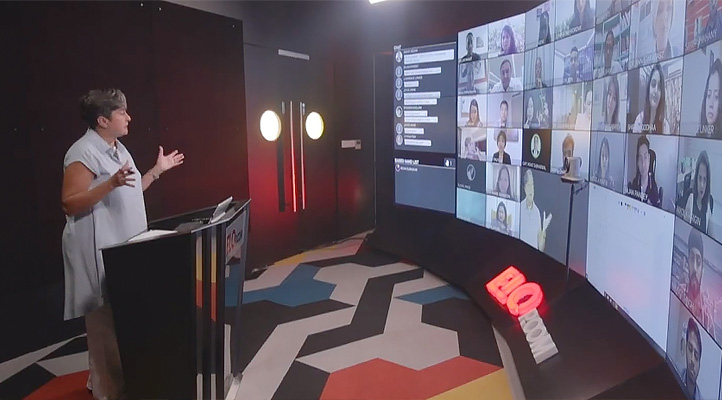Executive MBA: On-Campus vs Online – Which is Right for You?
In the fast-paced business world, continuous learning is the key to career success. An Executive MBA (EMBA) program offers working professionals a career edge, fostering leadership, critical thinking, and strategic prowess, among other things. However, with essentially two primary formats to choose from -– on-campus and online, how can potential candidates decide which is the best fit for them? This guide delves into the comparative advantages and drawbacks of both pathways.

1. The On-Campus Experience
Advantages:
Hands-on Learning: On-campus EMBA programs include practical sessions, workshops, and simulations, enabling students to grasp complex business concepts through active participation. Professors can provide immediate support and feedback to help students grasp difficult concepts. They can literally look over students’ shoulders to see their work and give advice and guidance.
Greater Student Focus: Studying on-campus enables greater concentrated focus as students are away from possible distractions and interruptions if they are studying from home or work.
Networking Opportunities: The on-campus format provides immediate access to a community of like-minded working professionals. Weekly face-to-face interactions with peers from varied industries can foster deep and invaluable connections and long-lasting friendships.
Dedicated Facilities: Campuses are equipped with cutting-edge classroom resources, meeting areas, and a library that provides a conducive environment for deep learning and interactive group projects.
Disadvantages:
Less Flexibility: Scheduled classes may conflict with professional or personal travel commitments, requiring attendees to manage their time effectively.
Commuting: Depending on the distance, travelling to and from the campus could be both time-consuming and costly.
2. Online EMBA
Advantages:
Flexible Learning: The primary lure of the online EMBA is the ability to flexibly study from home, work or elsewhere.
Global Perspectives: Online programs can attract a very diverse cohort from around the world. Engaging with international peers can broaden a person’s business perspective and professional network.
Cost-Effective: Without the need for commuting or potential relocation, online EMBAs can prove to be more economical.
Technology Advances: Recent technological advances in learning platforms have resulted in some leading-edge EMBA online programs offering students synchronous learning with their professors in real-time. It now gives many more opportunities for students to interact.
Disadvantages:
Limited Face-to-Face Interaction: While digital communication tools have advanced student interaction, some students still feel that the lack of in-person networking hinders relationship-building.
Self-Motivation Required: The autonomy offered by online learning demands high levels of self-discipline and time management.
Good Technology: It is important that students have access to good and reliable technology. Any technological issues at the school’s or student’s end can have a negative impact on learning.
Hybrid Solutions – Best of Both Worlds?:
Many institutions are recognising the merits of both on-campus and online formats, resulting in hybrid EMBA Programs. They offer a mix of face-to-face and online courses, giving students more flexibility while ensuring they don’t miss out on essential on-campus experiences.
3. To Make the Right Decision When Choosing Between an On-Campus and Online EMBA, Consider:
Your Learning Style: Do you thrive in a classroom environment, or do you prefer the autonomy of online learning?
Networking Priorities: Is immediate, face-to-face networking crucial for your career goals? Or are you comfortable building connections digitally?
Lifestyle & Commitments: Can you commit to regular on-campus classes, or does the flexibility of online learning better suit your travel schedule?
In conclusion, both on-campus and online EMBAs come with their unique set of opportunities and challenges. The right choice hinges on individual preferences, learning styles, and career aspirations. However, regardless of the format, an EMBA promises to be a transformative learning experience, empowering professionals to climb up the corporate ladder.
About the Authors
Dr Gary Stockport, Dr Monica Gallant, Dr Bhanu Ranjan, Dr TP Anand, and Dr Parmita Debnath, faculty members of SP Jain Global, co-authored this piece. They are based at the Dubai and Singapore campuses of SP Jain Global.

